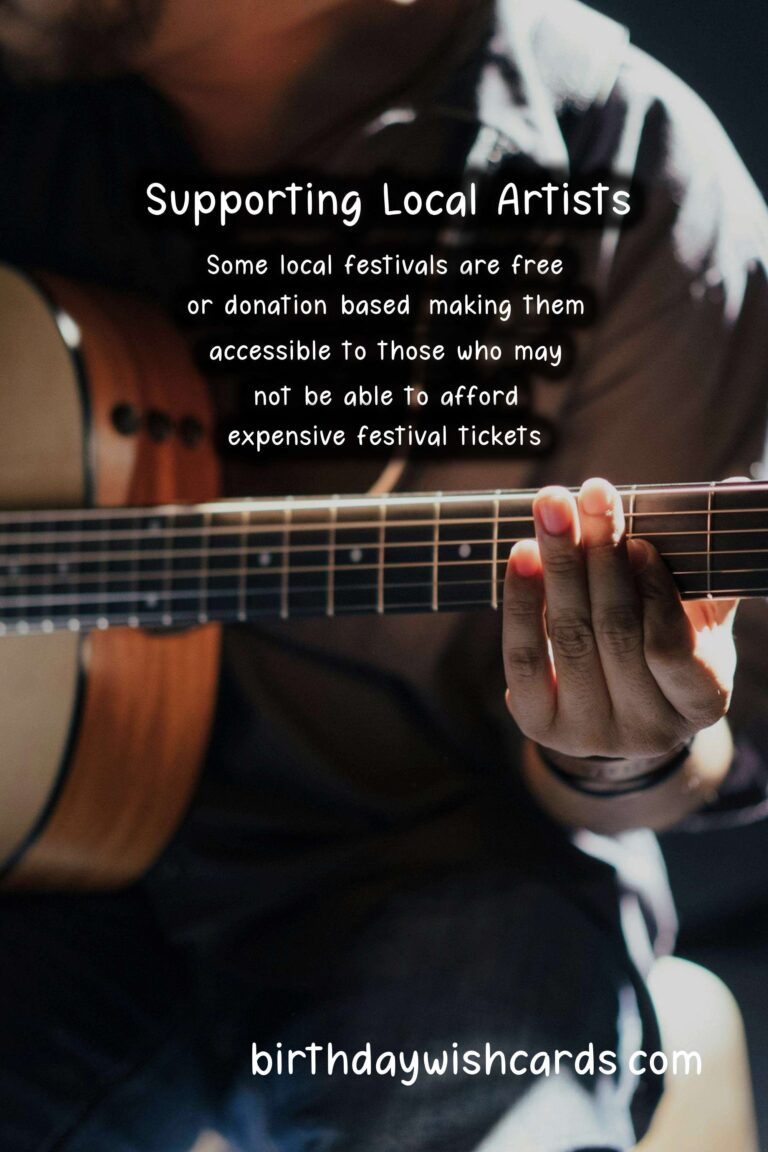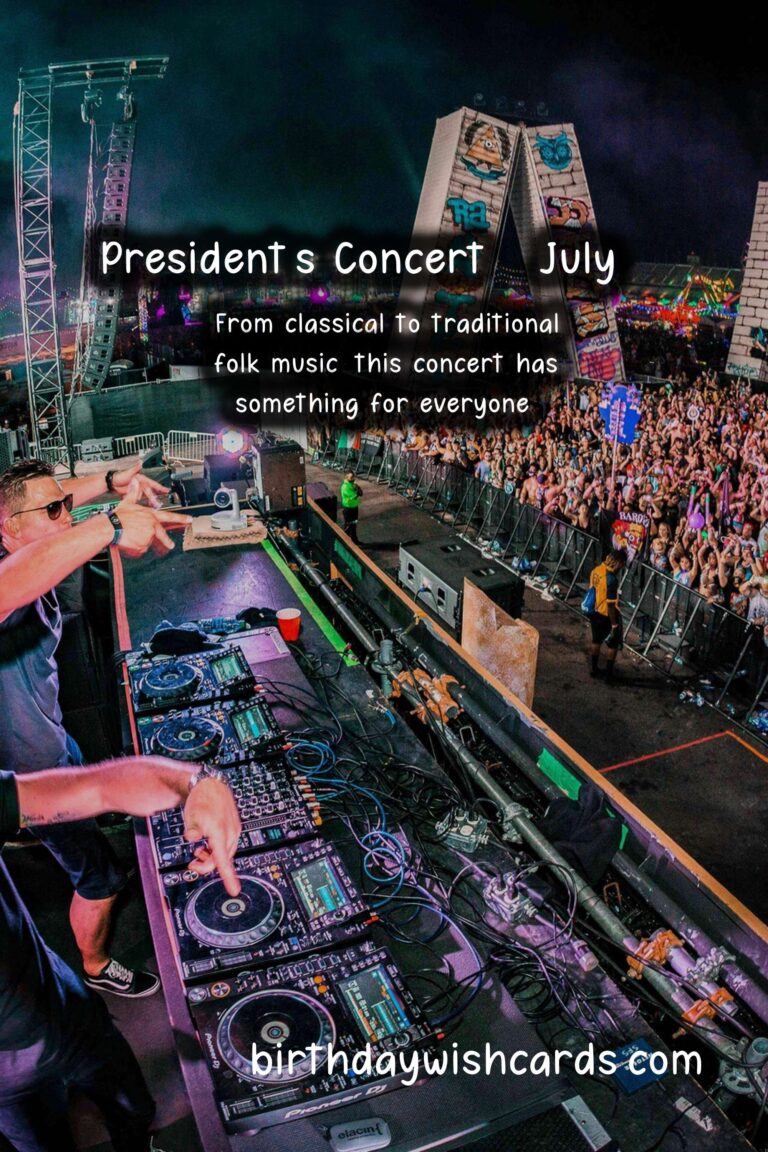International Jazz Day – April 30
The History and Significance of International Jazz Day
On April 30th every year, musicians and jazz enthusiasts around the world celebrate International Jazz Day. This day was designated by UNESCO in 2011 to highlight the importance of jazz as a vehicle for peace, intercultural dialogue, and international cooperation.
Jazz is a unique genre of music that has its roots in African American communities in the late 19th and early 20th century. It blends elements of African and European music traditions, with improvisation and syncopated rhythms. Jazz has since evolved into a global music phenomenon, influencing and being influenced by cultures all around the world.
The first International Jazz Day was celebrated in 2012, and since then, it has become a much-anticipated event for jazz lovers and artists alike. Each year, a different city is chosen to host this grand celebration, which includes workshops, masterclasses, concerts, and educational programs for students and the general public.
The theme for this year’s International Jazz Day is “Jazz and Gender Equality” – a timely and important topic in today’s global landscape.
This year’s host city is Cape Town, South Africa, a country with a rich jazz history and a thriving jazz scene.
South Africa gave birth to jazz legends such as Hugh Masekela and Miriam Makeba, and has produced many other talented jazz musicians.
International Jazz Day is also a platform for highlighting emerging jazz talents from around the world, giving them the opportunity to showcase their skills and connect with established artists and industry professionals.
One of the highlights of International Jazz Day is the All-Star Global Concert, featuring an incredible line-up of jazz artists from different parts of the world.
Previous performers include Herbie Hancock, Esperanza Spalding, Wayne Shorter, Dianne Reeves, and Marcus Miller, to name a few.
Aside from the concerts and performances, the day also includes workshops, masterclasses, panel discussions, and jam sessions – making it a truly immersive experience for all attendees.
Jazz has been used as a means of social and political commentary, giving a voice to oppressed communities and standing up against injustice.
This year’s celebration of Jazz and Gender Equality will highlight the role of women in jazz, an often underrepresented group in the genre.
From early jazz pioneers like Lil Hardin Armstrong and Mary Lou Williams, to modern-day artists like Terri Lyne Carrington and Esperanza Spalding, women have played a crucial role in shaping the history of jazz.
However, there is still a lack of female representation in the jazz industry, and this year’s International Jazz Day aims to bring awareness to this issue.
This year’s celebration will also coincide with the 10th anniversary of the Jazz Education Network, an international organization that provides resources and support for jazz educators and students.
With the theme of Jazz and Gender Equality, this year’s International Jazz Day will also promote female involvement in jazz education and inspire future generations of female jazz musicians.
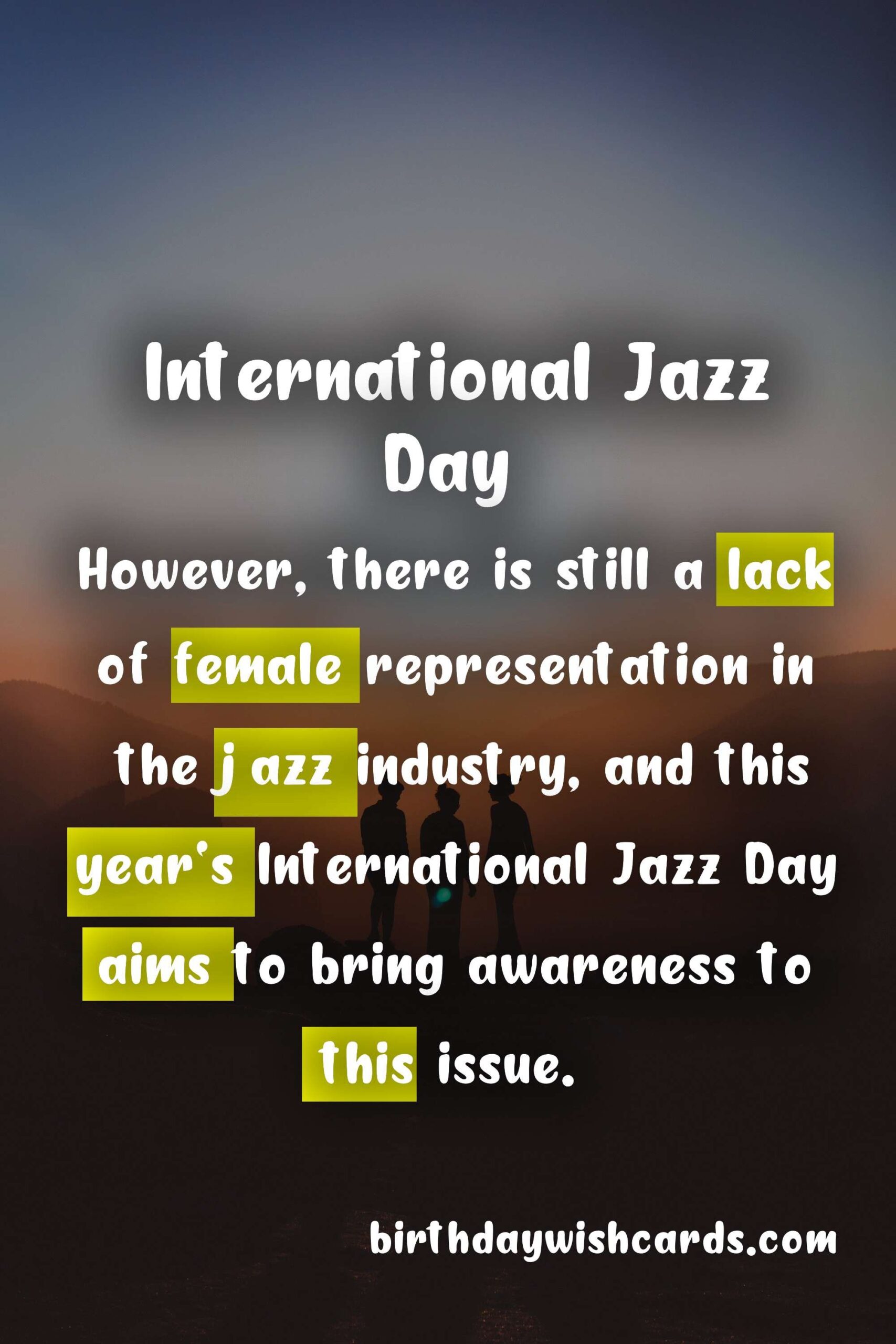


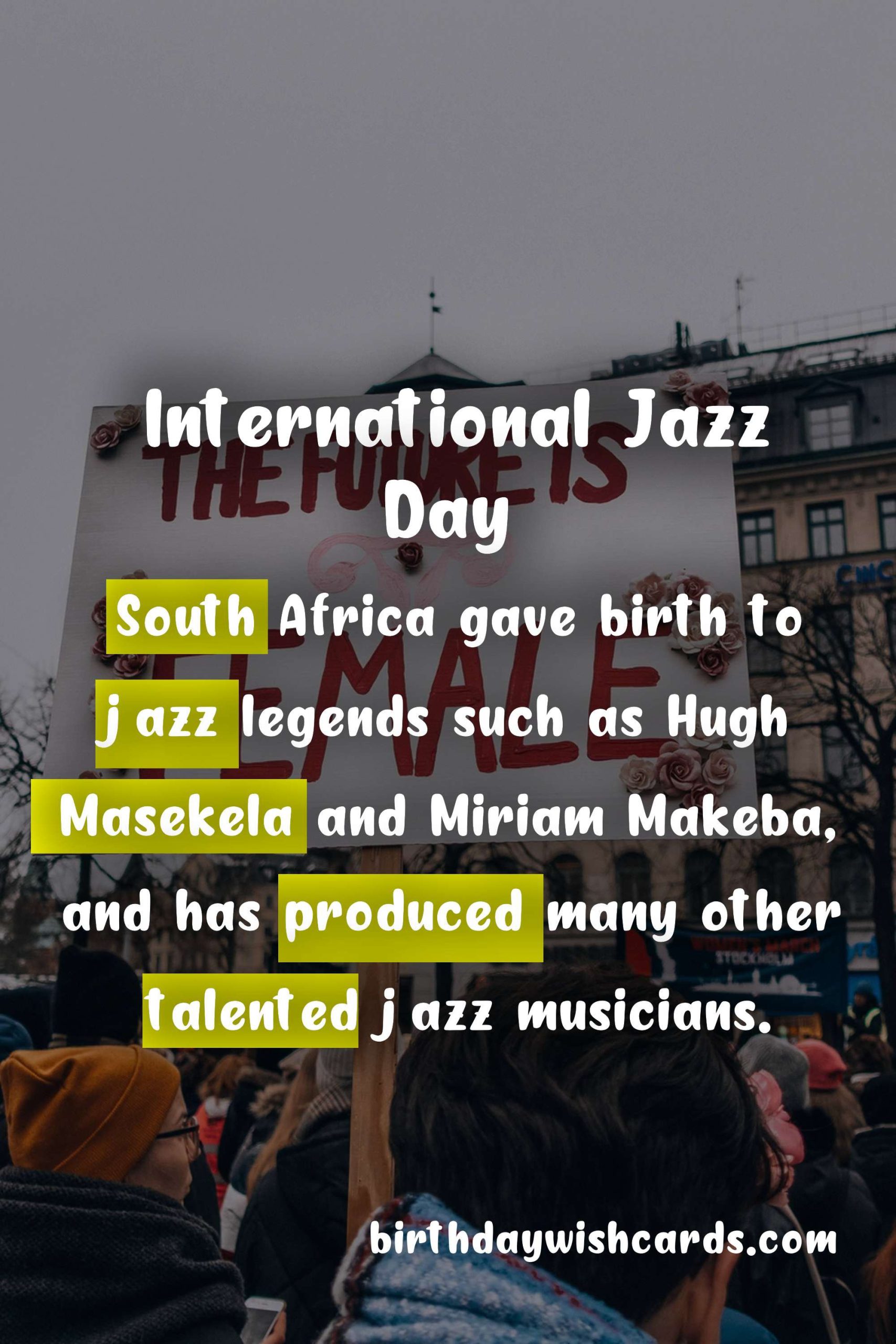
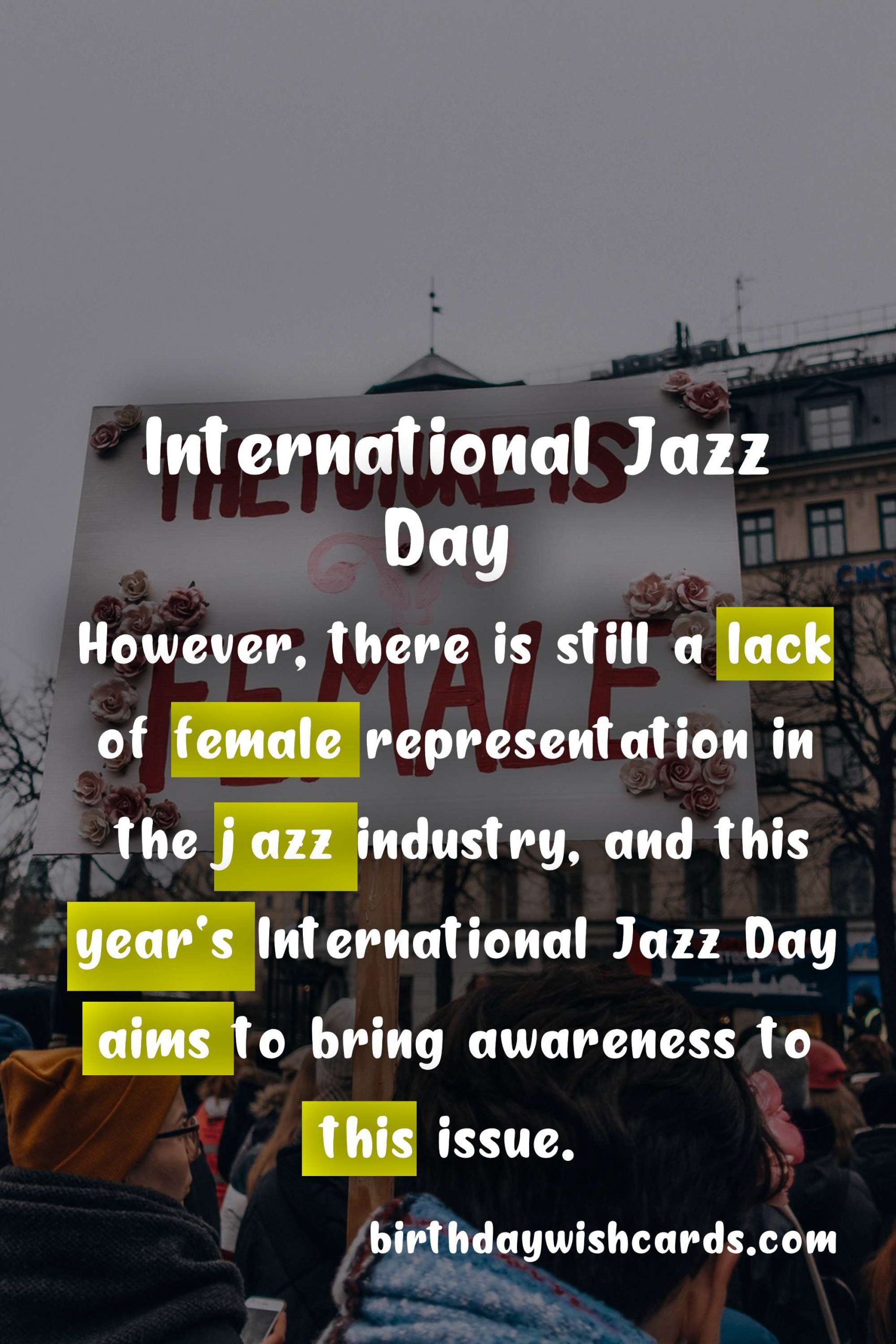
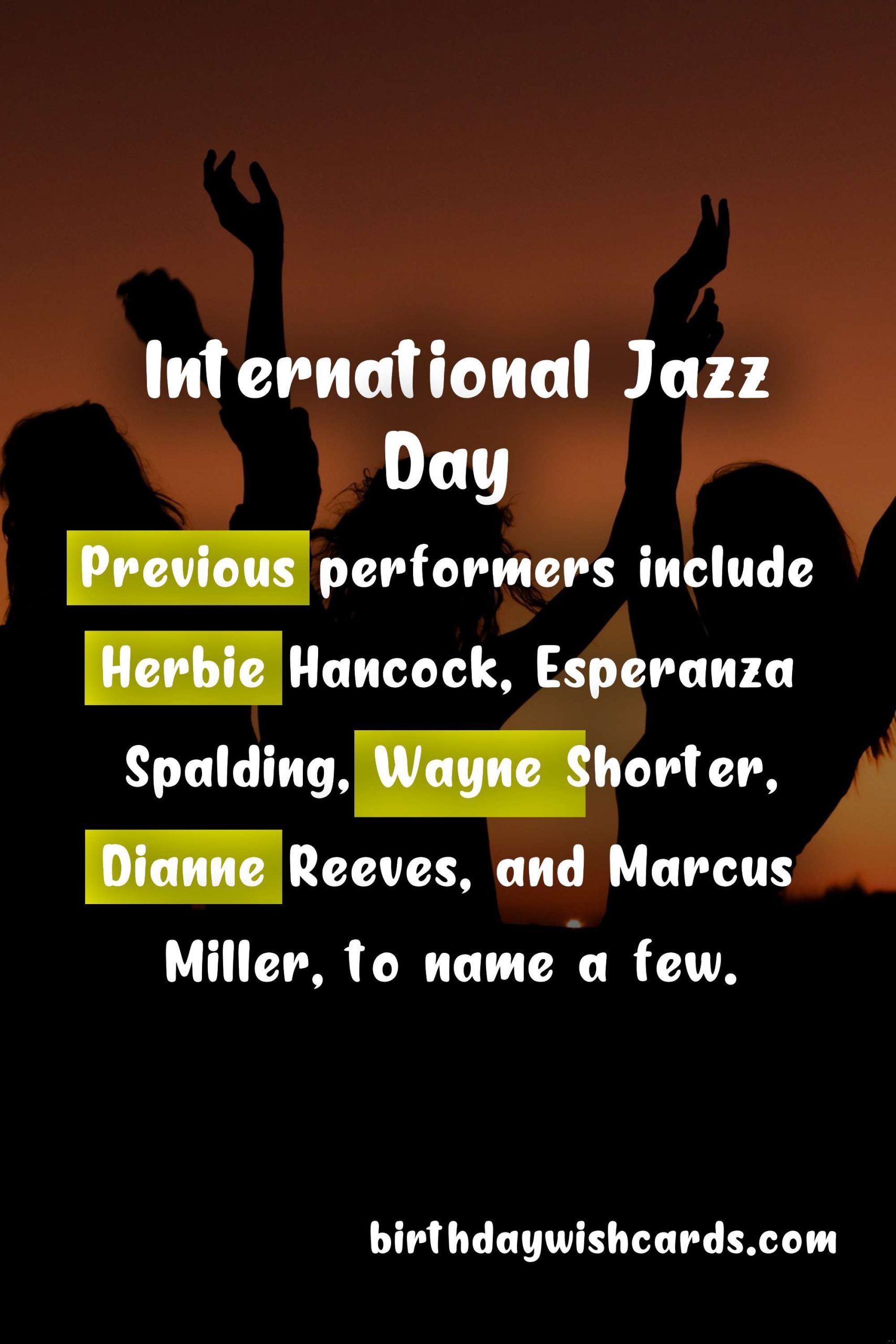
#InternationalJazzDay #JazzAndGenderEquality




